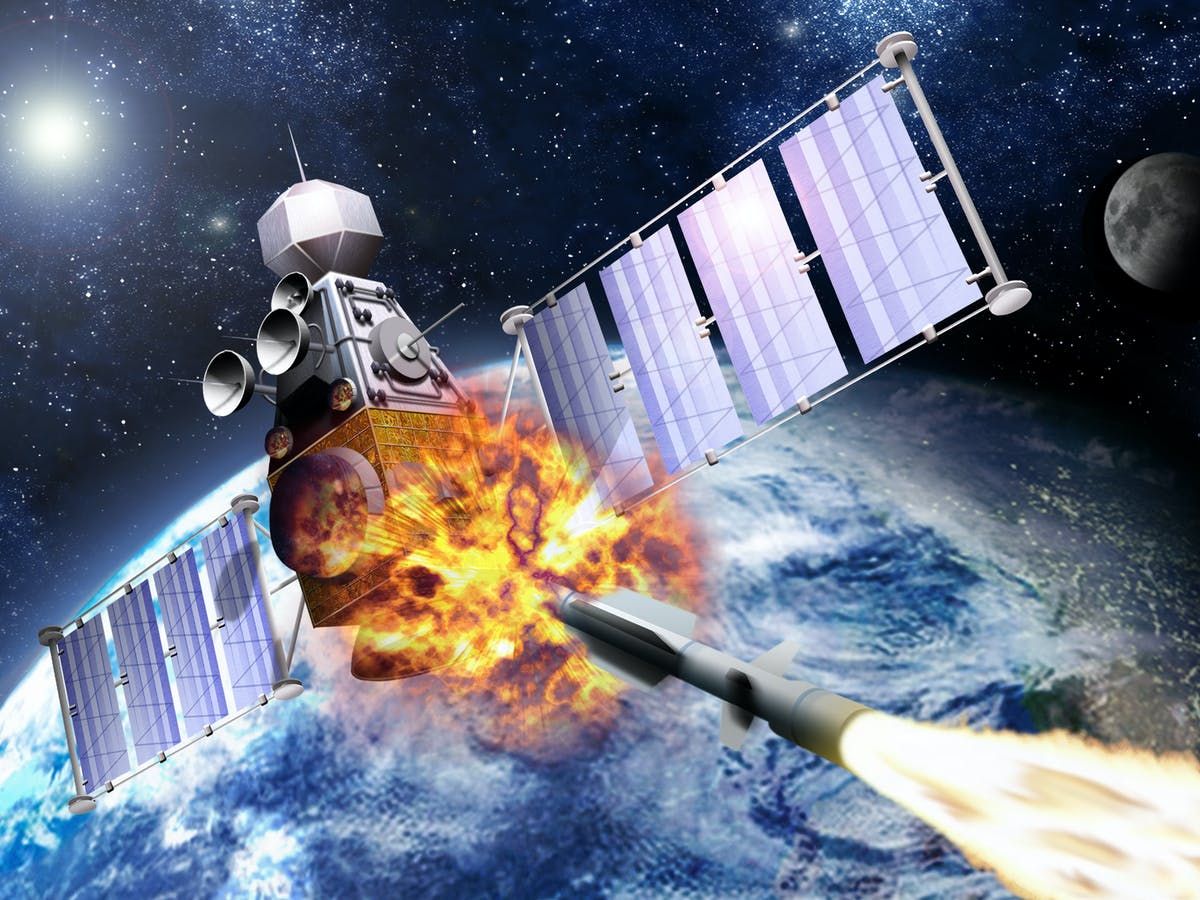China’s Space War With the US
Article by Brandon J. Weichert April 8, 2021 (asiatimes.com)
• Any conflict between the United States and China would likely begin at sea and in the skies over the Indo-Pacific region. Last month, US Navy Admiral John Aquilino testified before Congress that American forces deployed to the Indo-Pacific are overmatched by their Chinese rivals.
• US military forces and their allies would require unhampered access to satellites in order to defend against Chinese aggression. Nearly 70% of the US Army’s weapons rely on satellites to function. American warships would need to coordinate and communicate with one another and their combatant commands across the Mobile User Objective System (MUOS) satellite constellation in geosynchronous orbit, and across the Wideband Global Satcom (WGS) constellation.
• The ubiquitous Global Positioning System (GPS) constellation of satellites is essential for the movement and deployment of US forces, especially in a large area of operation like the Indo-Pacific. Even America’s vaunted nuclear command, control and communications (NC3) satellites could be destroyed in geosynchronous orbit, nullifying America’s nuclear deterrent.
• Denying the Americans access to these vital satellite constellations would be key for any plan by Beijing to invade Taiwan or to capture the South or East China Sea. A “Space Pearl Harbor” would temporarily blind and confuse US forces to create a window of opportunity for China’s ‘People’s Liberation Army’ (PLA) to defeat a confused American military.
• The US military would also attack China’s satellite constellations. But Beijing’s forces are nowhere near as dependent on satellites as are America’s military forces. Also, American forces would wait to be attacked in space before responding in-kind. This gives Beijing the advantage by allowing the PLA escalation dominance in a space war – which would translate to China’s advantage on land, at sea, in the air, and within cyberspace, at least for a short time. Western dithering in the face of Chinese aggression would lead to their defeat.
• China’s leadership knows it does not need to defeat the United States and its allies in a war, they simply need to delay US military power from intervening against their forces long enough for China’s military to achieve their strategic objectives, say, capturing Taiwan. Once captured, China’s leaders believe that their American rivals would be unwilling to commit the resources needed to restore the status quo. China’s leaders would use their crippling defeat of US military forces in the Indo-Pacific as the leverage they’d need to seek a negotiated settlement with Washington to create a new regional paradigm wherein China, not the United States, is the dominant player.
• To deter China from enacting a Space Pearl Harbor, the Biden administration must demand a larger budget for the fledgling Space Force and insist upon a doctrine of satellite defense coupled with total space dominance. It is easier to preserve America’s satellite capabilities in peacetime than it is to try to restore them in war.
• If the United States continues to leave itself vulnerable to attack in the strategic high ground of space, an aggressive and innovative foe like China could exploit such weaknesses in a moment of geopolitical crisis and put another nail in the coffin of America’s superpower status. A China-dominated world order is a development that few outside of Beijing desire.

If a war between China and the United States erupted today, an American victory would not be assured. US Navy Admiral John Aquilino recently testified before Congress that American forces deployed to the Indo-Pacific are overmatched by their Chinese rivals.
would not be assured. US Navy Admiral John Aquilino recently testified before Congress that American forces deployed to the Indo-Pacific are overmatched by their Chinese rivals.
Any conflict between the United States and China would likely begin at sea and in the skies over the Indo-Pacific region. Thus the US Navy, Air Force, and Marine Corps would form the tip of America’s spear in the region.
These US military forces (and their allies) would require untrammeled access to satellites in order to defend against Chinese aggression.
 For the US Navy to defend either the South or East China Sea effectively or to assist
For the US Navy to defend either the South or East China Sea effectively or to assist Taiwan, in the event that China attempted to invade the besieged democratic island-nation, American warships would need to coordinate and communicate with one another and their combatant commands across the Mobile User Objective System (MUOS) satellite constellation in geosynchronous orbit.
Taiwan, in the event that China attempted to invade the besieged democratic island-nation, American warships would need to coordinate and communicate with one another and their combatant commands across the Mobile User Objective System (MUOS) satellite constellation in geosynchronous orbit.
Nearly 70% of the US Army’s weapons rely on satellites to function. Therefore, another critical set of satellites China might target is the Wideband Global Satcom (WGS) constellation.
The ubiquitous Global Positioning System (GPS) constellation of satellites is essential for the movement and deployment of US forces, especially in a large area of operation like the Indo-Pacific. Even America’s vaunted nuclear command, control and communications (NC3) satellites could be destroyed in geosynchronous orbit, nullifying America’s nuclear deterrent.
FAIR USE NOTICE: This page contains copyrighted material the use of which has not been specifically authorized by the copyright owner. ExoNews.org distributes this material for the purpose of news reporting, educational research, comment and criticism, constituting Fair Use under 17 U.S.C § 107. Please contact the Editor at ExoNews with any copyright issue.
